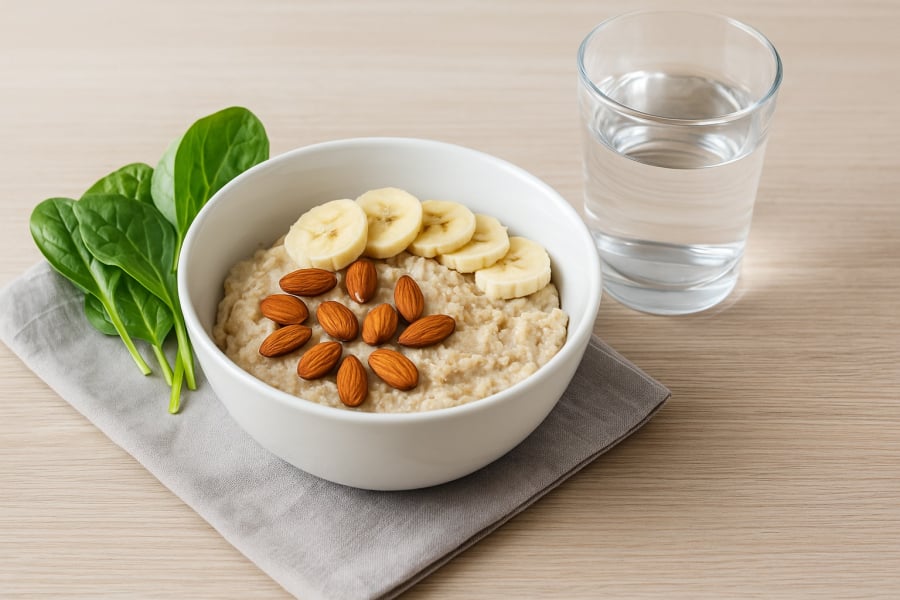Magnesium – The Mighty Mineral You Shouldn’t Overlook
In our bodies, magnesium acts as a “master key,” playing a crucial role in over 300 essential biochemical reactions. It helps regulate blood pressure, stabilize blood sugar levels, modulate nerve function, and support muscle contraction. Additionally, magnesium has a calming effect on the nervous system, reducing stress and improving sleep quality – factors that indirectly influence the risk of cardiovascular disease and stroke.
Sadly, most of us are unaware that we may be deficient in this essential mineral. Modern diets, often rich in processed foods but lacking in essential minerals, are a primary contributor to this deficiency.

Scientific Research: Magnesium Significantly Reduces Stroke Risk
A meta-analysis published in the journal Frontiers in Neurology in 2019 reviewed 15 studies involving over 700,000 individuals. The analysis revealed that those with the highest magnesium levels had an 11% lower risk of stroke overall and a 12% reduced risk of ischemic stroke, compared to those with the lowest levels.
Another study, published in the American Journal of Clinical Nutrition, noted that for every 100 mg of magnesium supplemented daily, there was an associated 8% decrease in the risk of stroke.
Just a few simple tweaks to your daily diet – such as adding more greens or a handful of nuts – can go a long way in protecting your heart and blood vessels.
Women Are More Prone to Magnesium Deficiency – Here’s What You Should Know
According to dietary recommendations, adult women require approximately 310–320 mg of magnesium daily. However, a US survey showed that nearly 60% of women do not meet this requirement through their regular diet.
Women are more susceptible to magnesium deficiency due to various factors: dieting habits, prolonged stress, the use of contraceptives or diuretics, and especially during pregnancy and breastfeeding.
Dr. Nguyen Thi Lan, a nutritionist at Bach Mai Hospital, warns, “Magnesium deficiency not only increases the risk of stroke but also impacts menstrual cycles, mood, and sleep quality in women. This is a mineral that modern women cannot afford to neglect.”

How to Effectively Boost Your Magnesium Intake
The best way to supplement magnesium is through your diet. Here are some natural magnesium-rich foods that you can easily incorporate into your daily meals:
- Dark leafy greens: spinach, kale, Swiss chard
- Nuts and seeds: almonds, cashews, pumpkin seeds
- Whole grains: oatmeal, brown rice, barley
- Legumes: black beans, kidney beans, green beans
- Fruits: bananas, avocados
- Seafood: salmon, tuna
Simply incorporating a bowl of oatmeal in the morning, a handful of unsalted nuts, or a plate of stir-fried greens into your daily routine can significantly boost your magnesium intake.
If you have difficulty absorbing magnesium from food due to health conditions or dietary restrictions, consult your doctor about taking magnesium supplements. However, avoid self-medicating with high doses as excess magnesium can lead to diarrhea and digestive issues.
Don’t Wait Until It’s Too Late – Take Action Now
Prevention is always better than cure, especially when it comes to serious conditions like stroke. Many people only realize the importance of magnesium when they experience symptoms such as mild eyelid twitches, headaches, rapid heartbeat, or sleep disturbances. These are early warning signs that your body is in distress.
The Ultimate Guide to Egg Water: 4 Genius Ways to Utilize This “Liquid Gold”
Eggs are a staple in many diets, but it’s the humble egg-water that often gets left behind. This unassuming liquid gold is packed with essential nutrients like calcium, magnesium, and potassium – a treasure trove of benefits often overlooked by many. With a mindful approach, this egg-water can be transformed into a versatile ingredient with endless possibilities.





































